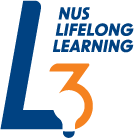Objectives
To provide background knowledge in Electrical Power Engineering to engineers from different domains of engineering.
Module Objectives: This module covers the fundamental principles of modern electrical energy systems; including three-phase power system and analysis, electric generations, electric loads, and power electronic converters. Upon completion of this course, students will be able to analyse, model, and predict the performance of energy systems and devices including single-phase and three-phase systems, transformers, and various types of generators. Students will develop a broad systems perspective and an understanding of the principal elements of electrical energy systems. Upon completion of this module, students should be able to -
1. Explain active, reactive, complex power, and power factor – its impact on losses and need for power factor correction.
2. Examine power mixed signals, single-phase and three-phase sinusoidal and non-sinusoidal.
3. Analyse steady-state AC circuits using RMS phasor for balanced three-phase and single-phase.
4. Understand key components of power systems including transformer, induction motor load, static load, transmission line, cable, and rectifier load.
5. Model and analyse the working of a power system from generation to load
6. Describe earthing and safety in the context of power systems
7. Recognize and report relevant topics of current interest, such as integration of renewable energy sources and in the context of Singapore’s power system, power quality, harmonics, environmental effects, and renewable options.


